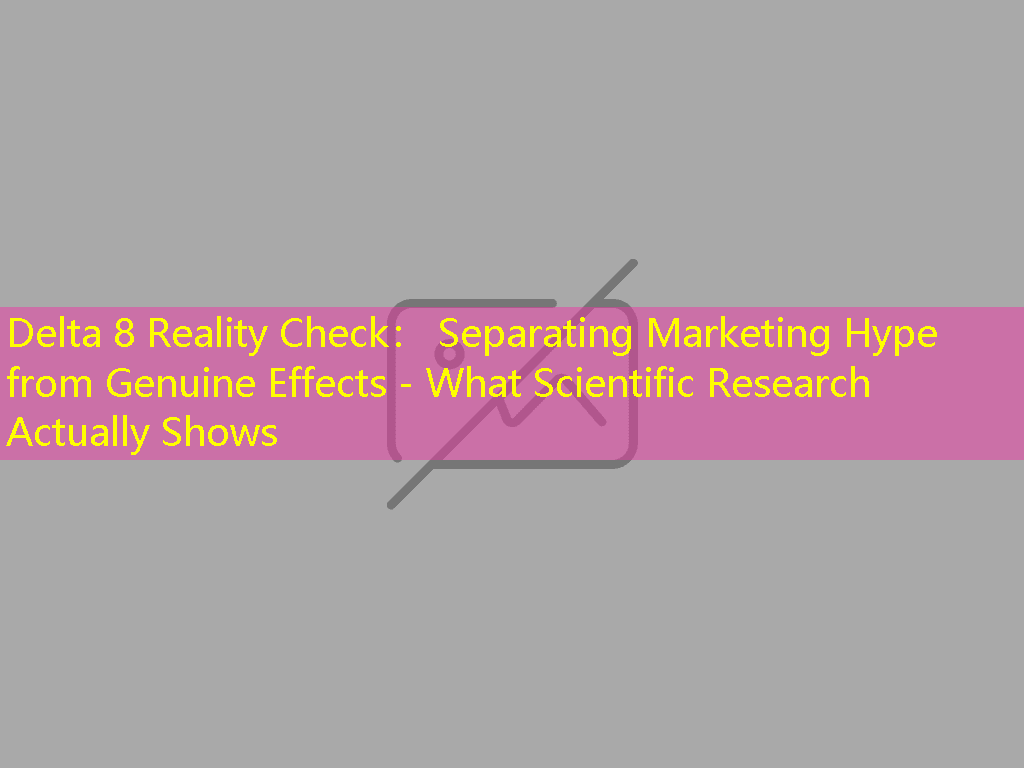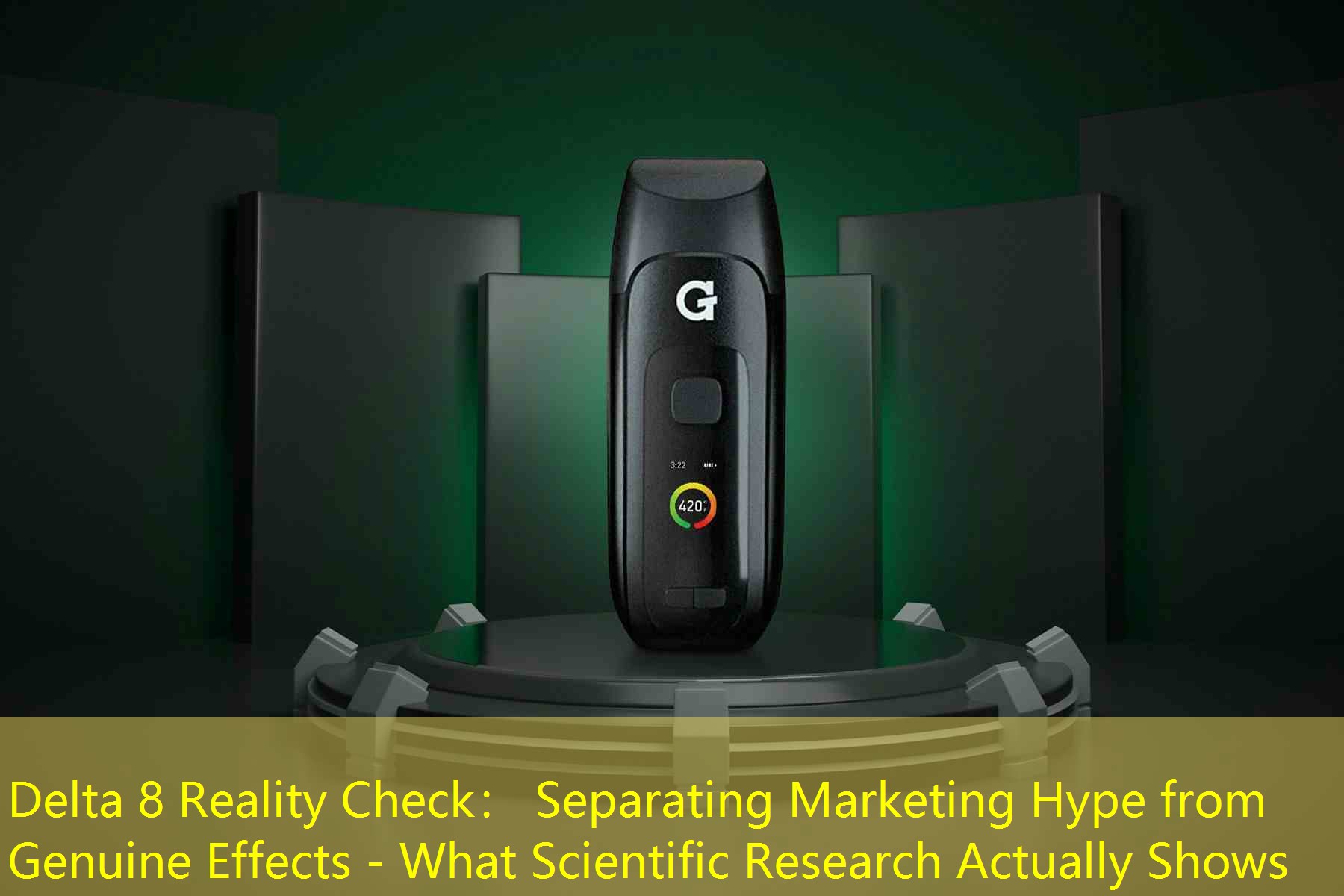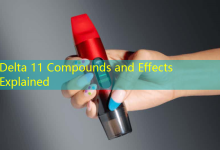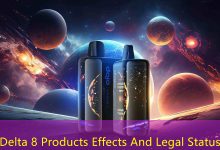Delta 8 Gerçeklik Kontrolü: Pazarlama Aldatmacasını Orijinal Etkilerden Ayırmak
The popularity of Delta 8 THC son yıllarda hızla arttı, geleneksel esrara güvenli ve etkili alternatifler olarak pazarlanan çok sayıda ürüne yol açıyor. Fakat, Tüketici ilgisindeki artışla birlikte, bu bileşiğin gerçek etkilerini gizleyebilecek yanıltıcı iddialarda ve pazarlama söylentilerinde bir artış meydana geliyor. Bu makalede, Delta hakkında bilimsel araştırmaların gerçekte neler gösterdiğini inceleyeceğiz 8 THC, Aldatmacanın ortasında netlik sağlamak ve Delta ile net bir karşılaştırma sağlamak 9 THC ve diğer kanabinoidler.
Deltayı Anlamak 8 THC
Delta 8 THC, veya Delta-8-tetrahidrokanabinol, kenevirden elde edilen bir kanabinoiddir. Delta'nınkine benzer psikoaktif özelliklere sahiptir. 9 THC—the main psychoactive component of marijuana—albeit typically cited as being less potent. The compound interacts with the endocannabinoid system in the body, influencing various physiological processes.
Scientific Research on Delta 8 THC
Recent studies have started to shed light on the effects of Delta 8 THC, albeit with limited peer-reviewed data. Early research suggests that Delta 8 may provide relief from anxiety, ağrı, and inflammation without the intense high often associated with Delta 9 THC. Örneğin, a study published in the Journal of Cannabis Research noted that Delta 8 THC could help manage chemotherapy-induced nausea, indicating potential therapeutic benefits.
Marketing Hype vs. Actual Effects

Despite the budding research, the marketing claims surrounding Delta 8 THC products often exaggerate their advantages. Many companies promote Delta 8 as a legal, non-intoxicating alternative to Delta 9, while in reality, users often report varying experiences. Understanding the differences between these cannabinoids can aid in making informed decisions.
Comparison Table: Delta 8 THC vs. Delta 9 THC
| Bakış açısı | Delta 8 THC | Delta 9 THC |
|---|---|---|
| Psychoactivity | Milder effects | Stronger effects |
| Legality | Legal in many areas | Restricted |
| Health Benefits | Potential benefits | Değişken |
Consumer Experiences with Delta 8 THC
User reviews of Delta 8 THC products reveal a mixed bag of experiences. While some report feeling a mild euphoria and relief from stress, others note that the effects are uneven and can vary significantly depending on the dosage and method of consumption. Unlike Delta 9 THC, which has a more predictable effect, Delta 8 experiences could depend heavily on individual tolerance and product formulation.

Potential Benefits and Risks
It’s essential to approach Delta 8 THC products with cautious optimism. Users may benefit from its purported effects on anxiety and pain relief; Yine de, there is still much we don’t know. The lack of extensive clinical research raises concerns about the safety and long-term effects of regular Delta 8 tüketim.
Common Questions about Delta 8 THC
1. Is Delta 8 THC legal?
In many areas, yes. Delta 8 THC derived from hemp is considered legal under the 2018 Farm Bill, provided it contains less than 0.3% Delta 9 THC. Fakat, legality can vary by state, so it’s crucial to check local regulations.
2. How does Delta 8 THC affect the body compared to Delta 9 THC?
Delta 8 THC typically produces milder psychoactive effects compared to Delta 9, which can lead to a more manageable experience for some users. Fakat, side effects may still occur, like drowsiness or increased appetite.
3. What should consumers look for when buying Delta 8 THC products?
Consumers should seek out products that provide third-party lab testing results showing cannabinoid content and purity. It’s also wise to read user reviews and avoid products with vague or misleading marketing claims.
Sonuç olarak, while the hype around Delta 8 THC is prevalent, understanding its effects through scientific research and consumer experiences can help individuals navigate this evolving landscape more effectively.







